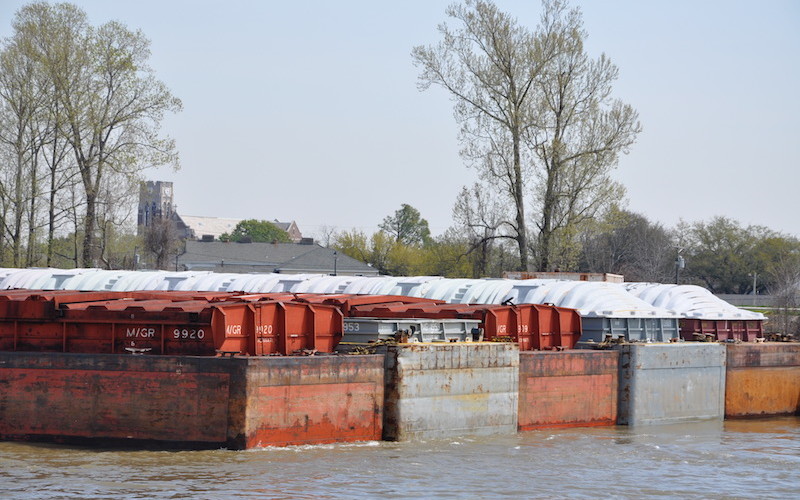Barge companies continue to hit the brakes on building new equipment.
According to the annual survey of new hopper barge construction from River Transport News, which tracks the inland river industry, newbuild activity was slightly elevated last year compared to 2022 but remained lackluster as operators hold back on investing in new barges.
Barge lines took delivery of 318 new jumbo hopper barges in 2023, 41% higher than the 225 barges delivered the previous year. However, “shipyard activity remained well below levels that prevailed in the years prior to 2017,” the survey said. In 2016, for example, 1,000 new hopper barges were delivered before the number hit the skids in 2017 and has remained “at relatively depressed levels ever since.”
Companies have been discouraged by high interest rates and record high prices for the main components of barges — plate steel. Steel prices dropped a bit last year, slightly stimulating demand, but remained elevated. A gap developed between hot-rolled coil and plate steel prices, RTN said, which prompted Arcosa Marine Products, a Missouri-based barge manufacturer, to make some changes in barge designs in late 2022 to use hot-rolled coiled steel instead of more pricey plate steel to make hopper barges. This led to a surge in new orders at the end of 2022 for barges that were delivered last year.
Heartland Barge Management took delivery of the most jumbo covered hopper barges in 2023 (151), followed by Campbell Transportation (54) and Crounse Corp. (40).
Covered barges led the way, with 223 delivered last year, up from 168 in 2022. Open hopper barges totaled 95 last year, up from 58 in 2022. Arcosa Marine was the most active barge builder, delivering 197 covered and open barges.
Looking ahead, RNT expects this year’s deliveries to remain sluggish, about the same as last year. This prediction has a lot to do with steel prices, which are expected to remain elevated into 2024. “In addition, barge markets, as measured by spot rates, have cooled considerably since the end of 2022 and early 2023.”
It will be interesting to see what happens with interest rates and steel prices as the year progresses. Many inland operators fear that without a major drop in steel prices, there won’t be significant newbuild programs. This could upset the fragile equilibrium between supply and demand for barges on the inland river system.




